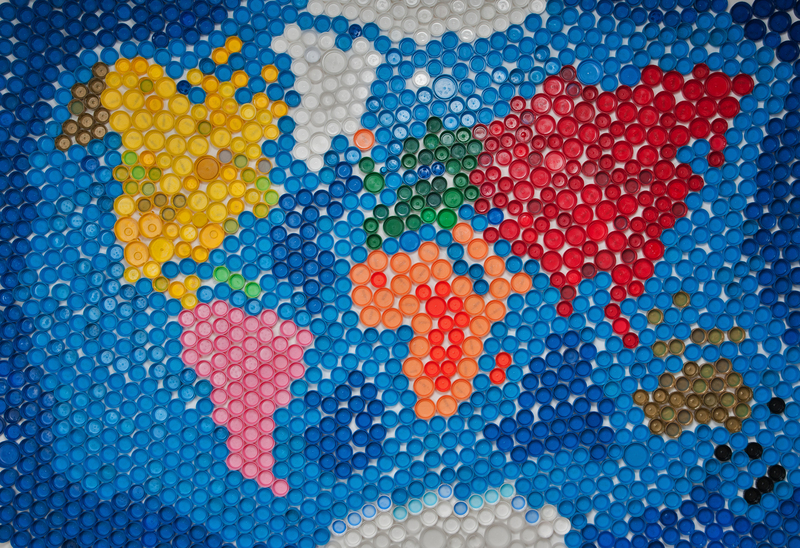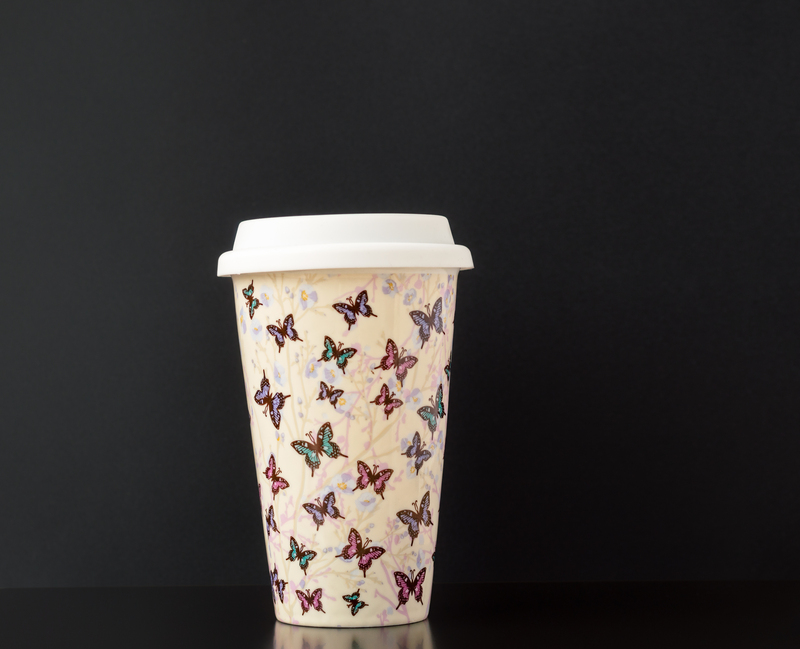Smart Ways to Minimize Your Plastic Consumption
Plastic pollution is one of the biggest environmental threats of our time. With millions of tons ending up in landfills, oceans, and ecosystems each year, minimizing plastic consumption has become a necessity for the health of our planet and future generations. But cutting back on plastic doesn't mean giving up convenience or comfort. There are smart and practical strategies you can adopt in your daily life to drastically reduce plastic waste without sacrificing your lifestyle. This comprehensive guide offers actionable tips and insights to help you minimize your plastic use effectively.
Why Should You Minimize Plastic Use?
While plastic has many helpful uses, most of it is designed for single-use and takes centuries to decompose. Reducing plastic usage matters because:
- Plastic waste harms wildlife and marine ecosystems
- Microplastics contaminate our food and water supply
- Most plastics are not recycled and end up in landfills or incinerated
- Plastic production relies on fossil fuels and contributes to climate change
By embracing smart ways to cut down plastic, you are directly contributing to a cleaner, healthier planet.

Mindful Shopping Habits: The First Step to Reducing Plastic
1. Bring Your Own Bags
Reusable shopping bags are one of the easiest and most effective tools for minimizing plastic. Replacing single-use plastic bags with sturdy totes made from cotton, jute, or recycled materials can prevent hundreds of plastic bags from entering the waste stream each year.
- Keep a few reusable bags in your car or backpack at all times.
- Opt for bags made from sustainable materials.
- Use produce bags to avoid thin plastic film in the vegetable aisle.
2. Buy in Bulk
Bulk shopping is a smart way to minimize plastic packaging. Many stores have bins for dried goods, nuts, grains, and spices where you can use your own containers or paper bags. This reduces the excessive packaging that comes with individually wrapped items.
- Check if your local store offers a bulk section.
- Bring clean jars or cloth bags for shopping.
- Label containers with the item code for easy checkout.
3. Choose Products with Minimal or No Plastic Packaging
Choose items that use cardboard, glass, or metal packaging instead of plastic. These materials are easier to recycle and break down naturally over time.
- Look for brands committed to sustainable packaging.
- Avoid individually wrapped portions; opt for family-size packages when buying snacks.
- Support local farmers markets where produce is often unpackaged.
Smart Kitchen Swaps for a Plastic-Free Lifestyle
1. Switch to Reusable Food Storage
Plastic wrap and disposable sandwich bags are major culprits of single-use plastic waste. Replace them with more sustainable solutions:
- Beeswax wraps as an alternative to cling film
- Silicone food storage bags that can be washed and reused
- Glass or stainless steel containers for leftovers
You'll keep your food fresher while drastically cutting down your plastic footprint.
2. Say No to Bottled Water
Single-use plastic bottles are one of the most common ocean pollutants. Instead:
- Carry a reusable stainless steel or glass water bottle everywhere you go
- Install a water filter at home for clean, safe drinking water
- Encourage your office or school to provide water fountains or water coolers
This simple switch can save hundreds of bottles from ending up in the landfill each year.
3. Dine with Durable Cutlery and Plates
Cut down on single-use plastic cutlery and plates at home and when eating out. Smart options include:
- Packing a reusable cutlery set for work or travel
- Using ceramic or metal plates and bowls at gatherings
- Choosing compostable or bamboo alternatives for parties
Personal Care and Cleaning: How to Cut Plastic Here
1. Opt for Solid Toiletries
Many personal care products are packaged in plastic bottles and tubes. You can avoid unnecessary waste by switching to:
- Bar soaps instead of liquid soap in plastic pumps
- Solid shampoo and conditioner bars, which last as long as two or three bottles
- Powdered toothpaste or toothpaste tablets in glass jars
2. Choose Refillable or Bulk Options
Some stores offer refill stations for products like laundry detergent, hand soap, and cleaning sprays. Bring your own containers and refill as needed to eliminate single-use packaging.
3. Make Your Own Cleaning Solutions
Avoid buying plastic-packaged cleaning products by making your own with simple ingredients:
- Vinegar and baking soda for all-purpose cleaning
- Lemon juice for disinfecting and freshening
- Reuse glass spray bottles for application
Homemade solutions are not only better for the environment but also for your health--as they're often free from harsh chemicals.
Eco-Friendly Eating: Takeout, Restaurants, and On the Go
1. Refuse Plastic Straws and Utensils
Many restaurants automatically provide plastic straws and utensils. Be proactive:
- Politely say "no straw, please" when you order a drink
- Bring your own stainless steel, bamboo, or silicone straw
- Carry a foldable cutlery set in your bag or backpack for on-the-go meals
2. Choose Eco-Conscious Takeout Packaging
When ordering takeout, support restaurants that use biodegradable, compostable, or reusable packaging. If this is not an option, request:
- No plastic cutlery or napkins with your order
- Drinks in glass bottles or cans instead of plastic
- Returnable containers, if offered by the restaurant
3. Bring Your Own Containers
If you regularly take leftovers from restaurants or pack your lunch, bring your own containers made from glass, stainless steel, or BPA-free silicone. This practice not only minimizes plastic but also keeps your food safer and fresher.
Smart Habits for Home and Office
1. Limit Single-Use Items
Single-use plastics like coffee pods, disposable razors, and plastic pens add up over time. Consider these swaps:
- Buy a French press or reusable coffee pod for your morning brew
- Switch to metal safety razors or refillable razors
- Opt for fountain pens or refillable pens instead of throwaways
2. Recycle Correctly
Not all plastics are recyclable. Know your local recycling codes and sort waste properly. Clean plastic containers before recycling, as contaminated materials are often rejected.
3. Educate and Inspire Others
Share what you've learned about minimizing plastic waste:
- Talk to friends and family about your choices
- Influence your workplace to adopt sustainable practices
- Support community clean-up initiatives and legislation that addresses single-use plastics
Plastic-Free Parenting: Protecting Future Generations
Children's products often come heavily packaged in plastic. Smart ways for parents to reduce plastic consumption include:
- Choose wooden toys or items made from recycled materials
- Use cloth diapers and wipes instead of disposables
- Opt for baby food in glass jars or make your own at home
- Pack school lunches in stainless steel lunchboxes and reusable snack bags
These changes benefit your child's health and teach them the value of caring for the environment.
Traveling Sustainably: Reducing Plastic Abroad
Even when you're on the road, you can stick to your eco-friendly habits:
- Pack reusable water bottles, coffee cups, and travel cutlery
- Choose accommodations committed to sustainability
- Shop at local markets where produce is often plastic-free
Every small action has a positive impact--no matter where you are in the world.
The Role of Technology and Innovation in Reducing Plastic Use
As awareness grows, companies are developing plastic alternatives that are biodegradable or made from renewable resources. Popular innovations include:
- Plant-based straws, cutlery, and containers
- Packaging made from mushrooms or seaweed
- Edible packaging for snacks and drinks
Stay informed about new products and support brands that are pioneering sustainable packaging. Choosing these options signals to businesses that consumers want less plastic.

Making It a Habit: How to Stick to Your Commitment
Incorporating these smart methods to reduce plastic use into your everyday routine may require some adjustment, but with consistency, it quickly becomes second nature. Here are tips to stay on track:
- Start small--pick 1-2 habits to change at first
- Keep reusable bags and containers where you'll remember them
- Reward yourself for milestones--like a month without bottled water
- Track your progress to stay motivated
Key Takeaways: Smart Strategies for a Plastic-Free Life
Minimizing plastic consumption is not only about helping the environment--it also improves your health, saves money in the long run, and encourages positive societal change. By adopting plastic-reduction strategies like refusing single-use items, embracing reusable alternatives, and educating others, every individual can make a tangible difference. Remember:
- Every piece of plastic avoided matters
- Small changes add up to major impact over time
- You're part of a global movement toward a cleaner world
Challenge yourself today--start minimizing your plastic usage and inspire others to join you. The planet will thank you!